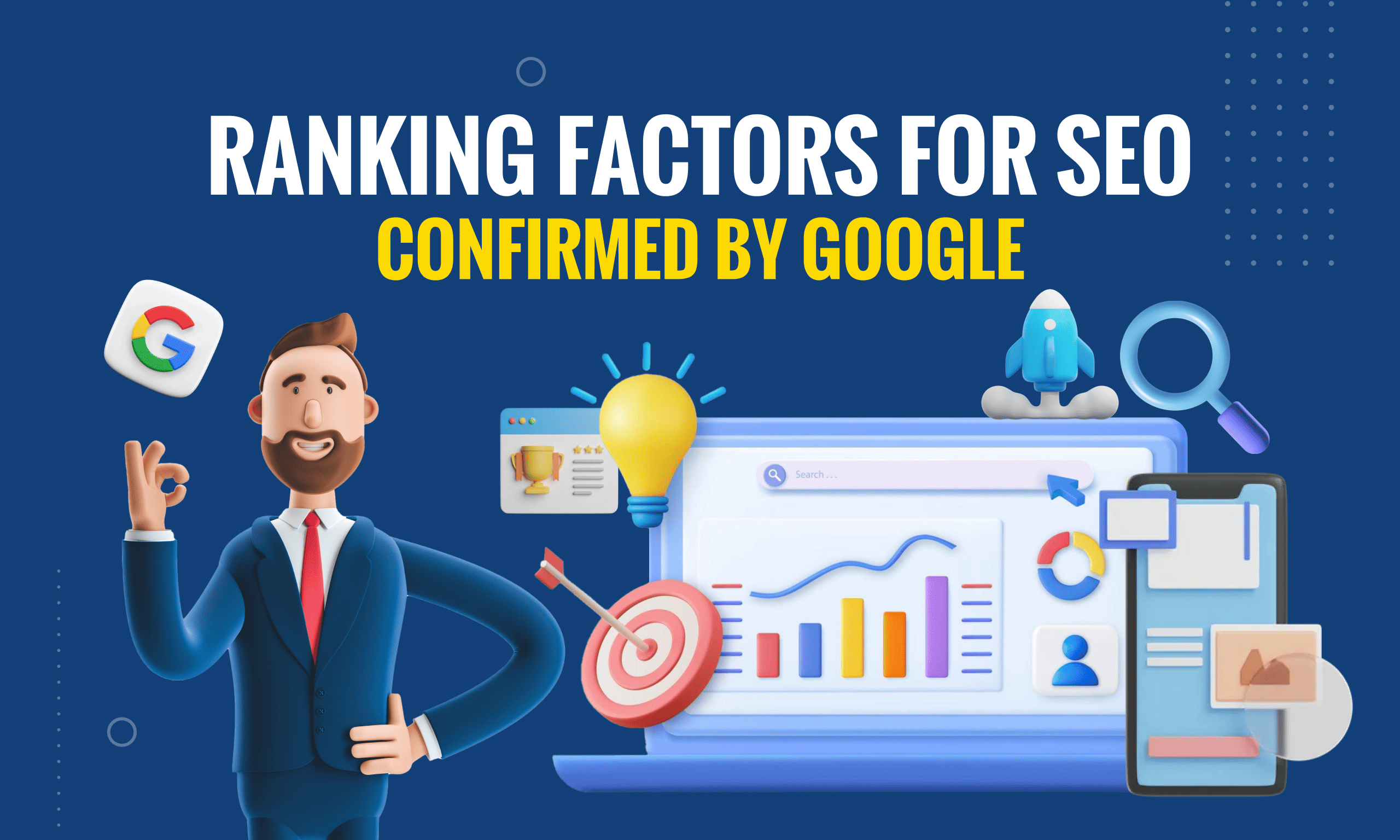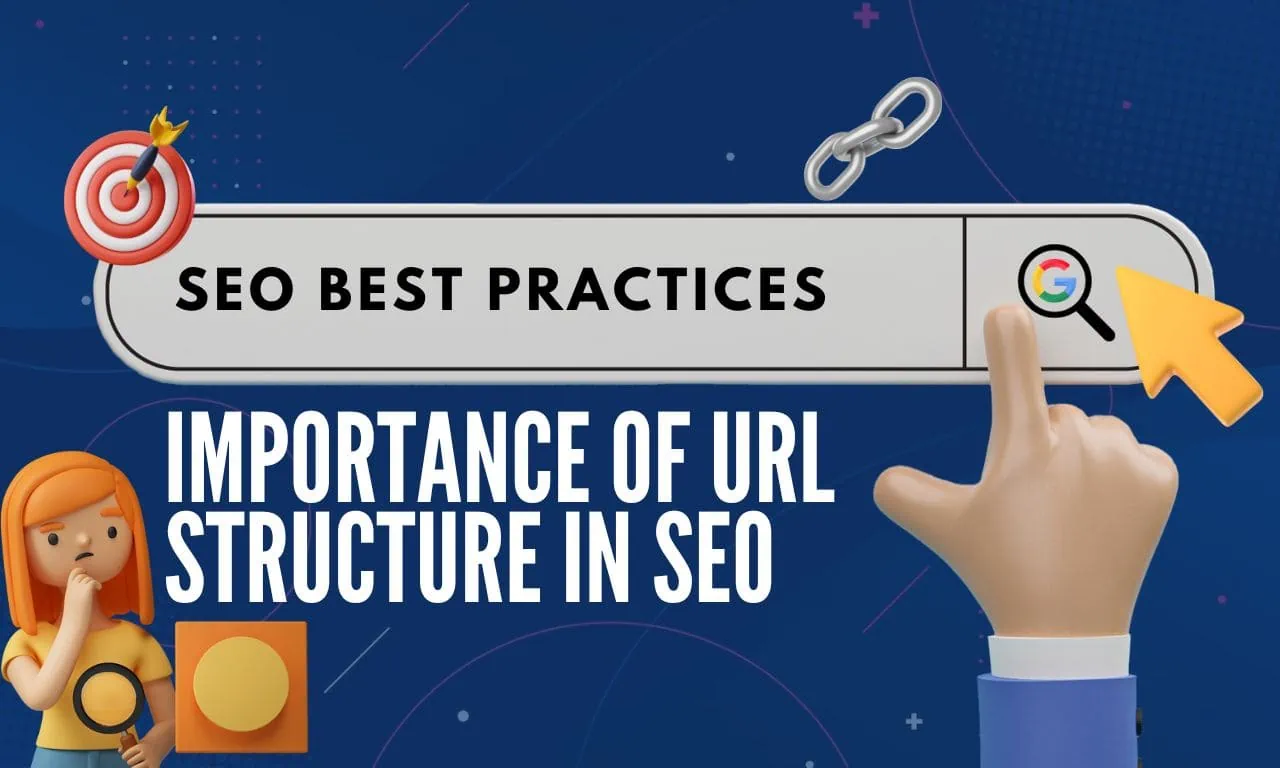Are you struggling to get your website noticed by Google? You're not alone.
Let's face it, we've all been there. We've spent hours crafting the perfect piece of content, only to find our website buried in the depths of search results. It's frustrating, isn't it?
Here's the solution: we're going to figure out what Google truly cares about—which are these "Search Engine Optimization (SEO) Ranking Factors".
We'll touch on these 4 main parts of SEO ranking factors:
- 1On-page factors
- 2Off-page factors
- 3Technical factors
- 4Indirect ranking factors
By focusing on these SEO factors, you can make your business in Singapore stand out online, bringing more visitors and potential customers to your website.
Are you ready to take your website to the top of the search results? Let's dive in!
Key Takeaways
- We divide SEO direct ranking factors into three main categories: on-page factors, off-page factors, and technical factors.
- On-page factors include elements like keyword optimization, fresh content, header tags, internal linking strategy, and image alt text.
- Off-page factors primarily involve backlinks and should be earned naturally rather than through paid links.
- Technical SEO factors include site speed, mobile-friendliness, secure connections (HTTPS), and URL structure.
Important! All the ranking factors we recommend below are supported by Google. You can click on the linked sources to learn more.
On-Page SEO Factors
Let's talk about on-page SEO, a major component of SEO. It's a big deal, because it heavily influences how search engines see your website. Now, let's get into the details of these on-page factors.
1. Keyword Optimization

Many marketers know about keyword optimization—but it's not just about adding keywords to a page. Here's what we know about keyword optimization in 2024:
- Keyword Research: You perform keyword research, analyze, and select the best keywords to target.
- Keyword Prominence: You need to put your main keyword right at the start of your content to help Google better understand what you want to rank for. It's like telling Google, "This is what my page is all about."
- Keyword Stuffing: Confirmed to be a negative ranking factor by Google, you should be selective when it comes to including keywords.
2. Fresh Content

Content freshness means keeping your website's content up-to-date with the latest industry trends and insights. This keeps your audience informed and signals to search engines that your site is a reliable source of current information.
We advise you to perform quarterly content audits which help to:
Address the search query with the latest information
Identify pieces of content that need a redirection to similar pages
Remove any outdated information (e.g., if your article was talking about COVID-19, it may not be as relevant today)
Update articles in specific topics/niches (e.g., technology) as they are usually subject to frequent changes
3. Header Tags
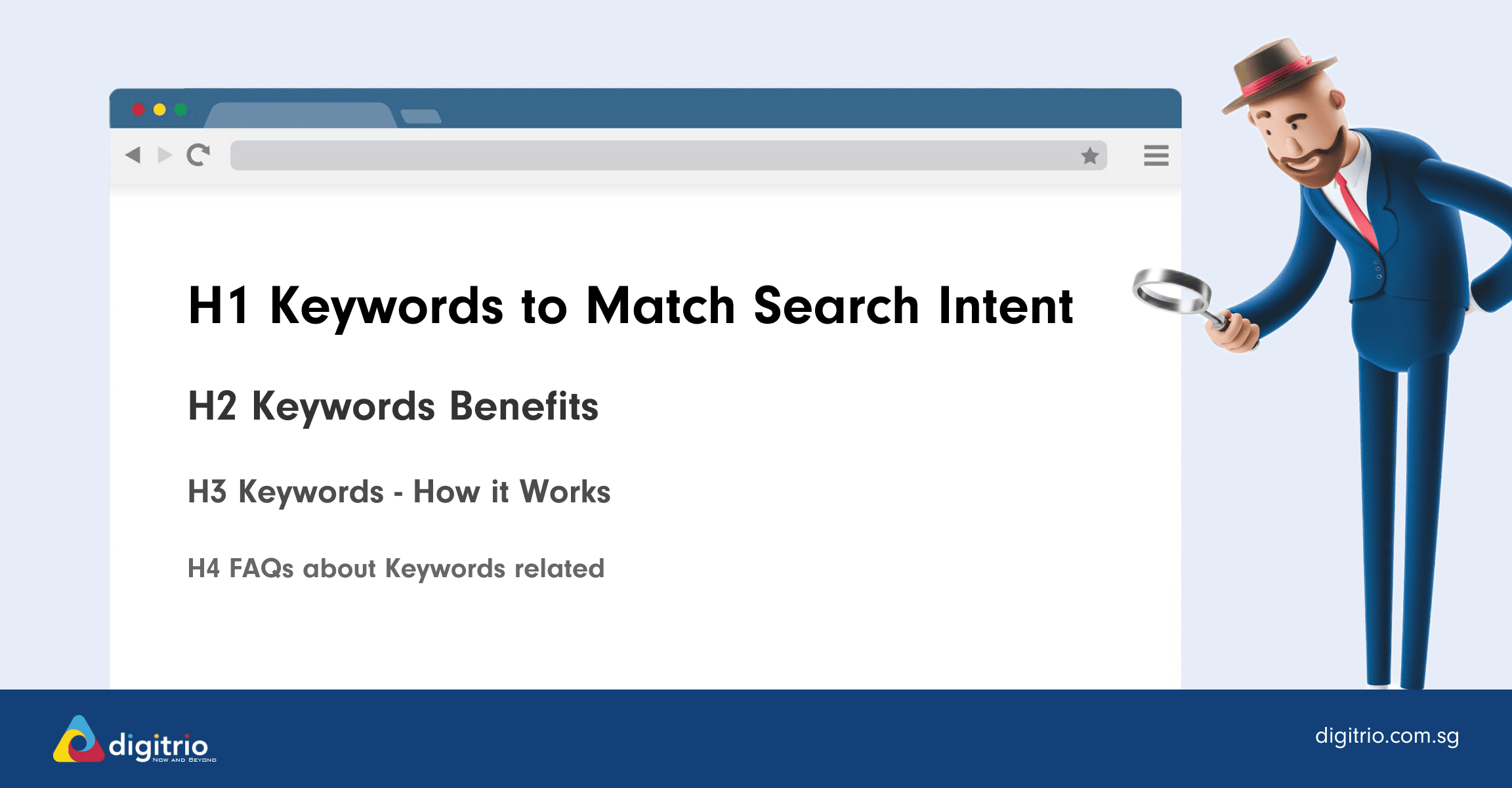
Header tags, or heading tags, help organize your page content and make it easier for both users and search engines to read. They include H1 and H2-H6.
Here 3 useful things we practice for header tags:
Use H1 tags for main headings and H2-H6 tags for subheadings
Keep H1 similar to the Title Tag
Add secondary keywords to our H2-H4s
4. Internal Linking Strategy
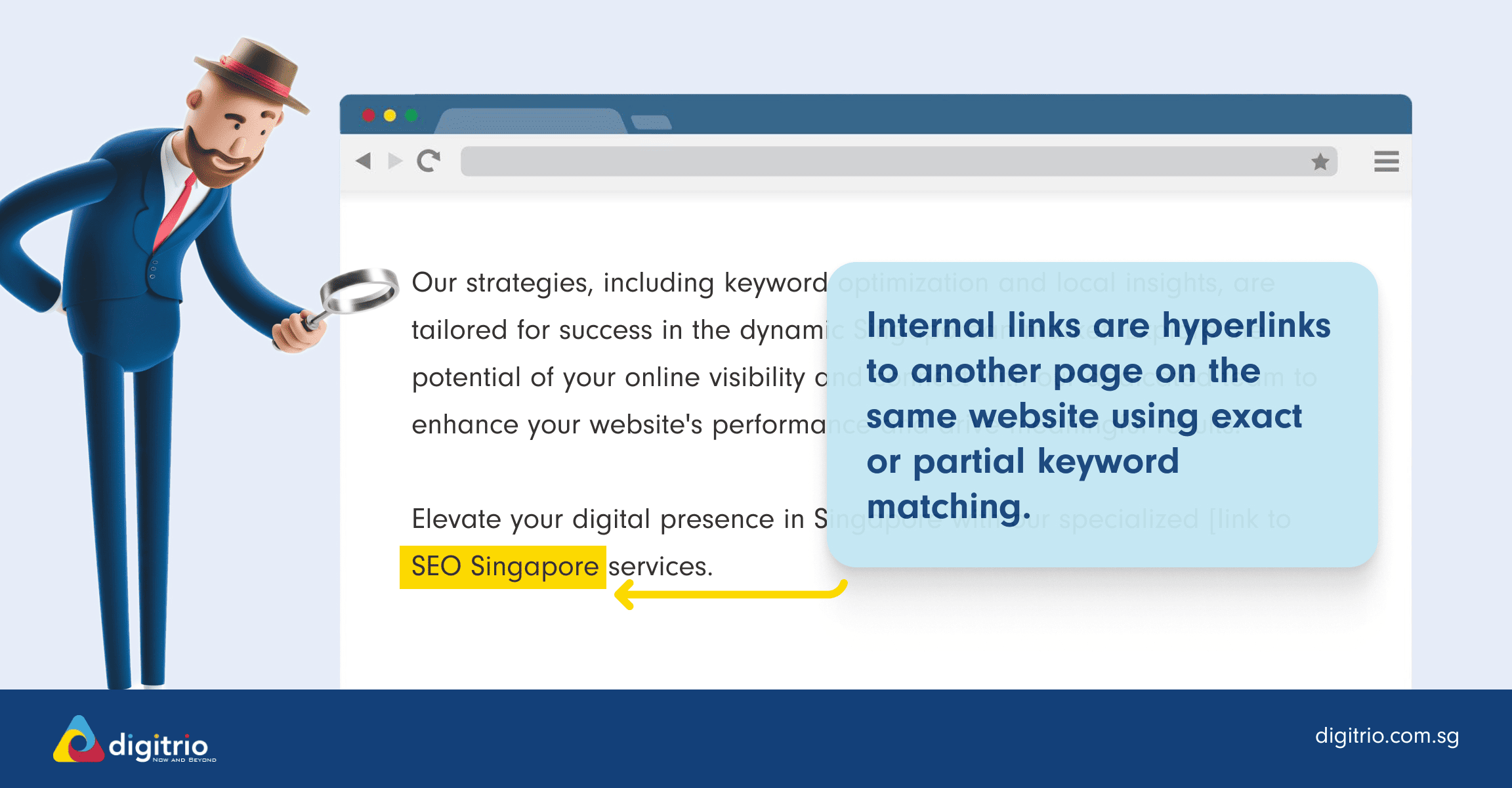
Internal links are shortcuts that connect different pages within your website, making it easier for users and search engines to navigate and discover content.
When creating internal links, it’s also important to use descriptive and keyword-rich anchor texts to give users a clear idea of where the link will take them.
5. Image Alt Text

Image alt text, or alternative text, is a brief description of an image that helps users and search engines understand the content and context of the image.
Alt text is a confirmed ranking factor for Google Image Search. It's also crucial for making your site accessible to visually impaired users, helping search engines index your site, and for certain rich results.
Read more: How to Write a Good Alt Text for SEO?
Off-Page SEO Factors
Off-page SEO is all about what happens outside your website. Think of things like social media engagement, collaborating with influencers, and getting other sites to link back to yours.
When you get good at off-page SEO, your website's reputation and authority get a big boost. This impresses both search engines and users. Let's learn more about these off-page SEO factors.
1. Backlinks/Inbound Links
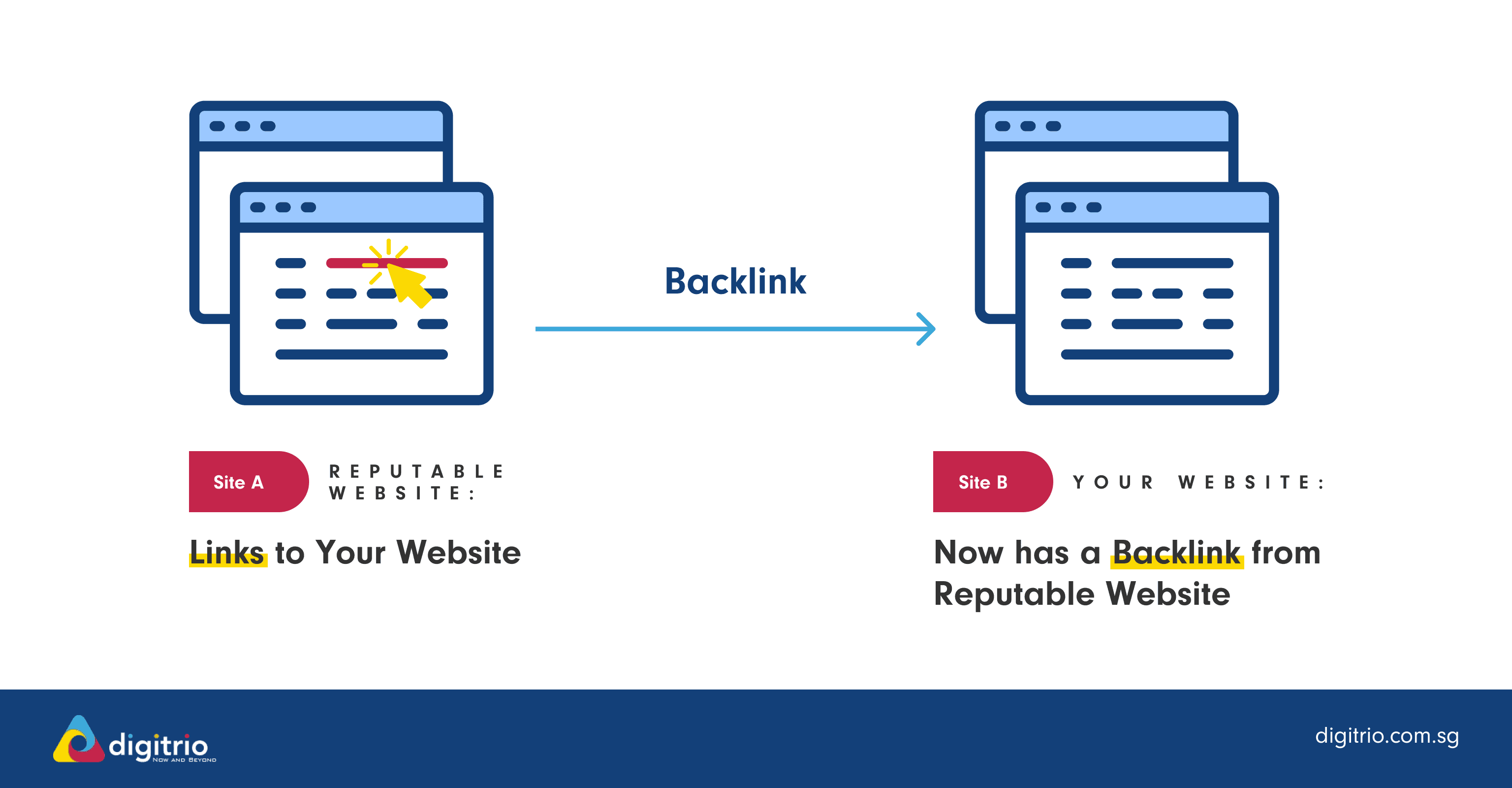
Backlinks, or inbound links, are links from other websites that point to your website.
These links from other sites to your website, are really important. They bring people to your site and help search engines decide how important your site is. If you get lots of good backlinks from trustworthy sites, your website's position in organic search can also go up a lot.
To get the most out of your backlink strategy, focus on creating useful, shareable content that other websites will naturally want to link to.
2. Paid Links

Paid links are links you buy from another site. You might trade money or other assets for these links. While they can increase your site's traffic and search engine rankings, search engines might view them as spammy. This could harm your Google rankings.
We advise you to play it safe and avoid the potential pitfalls of paid links. Instead, concentrate on building top-notch backlinks the natural way—craft valuable content and reach out to well-respected websites in your industry. By taking this approach, we make sure your website keeps its strong position and authority in search engine rankings, all while avoiding strategies that might be a bit too risky.
Technical SEO Factors
Let's talk about Technical SEO. This type of SEO is all about making sure the behind-the-scene elements and core web vitals of your website work better. Some of the most important ranking factors for technical SEO include:
1. Site Speed
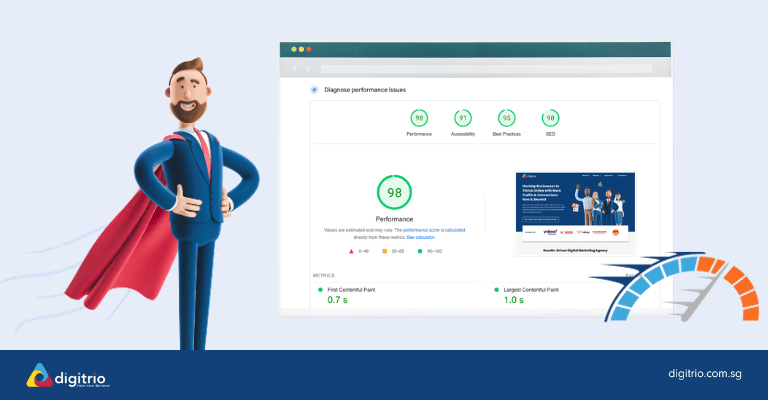
Site speed is a vital factor in both user experience and search engine rankings. A fast-loading website can lead to higher user engagement, lower bounce rates, and better search engine rankings. A slow website, on the other hand, can lead to frustrated users and lower search engine rankings.
To improve your website’s loading speed, consider optimizing your images, minifying JavaScript, and using a content delivery network (CDN). Additionally, you can use tools like Google PageSpeed Insights, GTmetrix, and Lighthouse to analyze your website’s speed and receive recommendations for improvement.
Learn more about page speed as a direct Google ranking factor.
2. Mobile-Friendliness

With the increasing number of mobile users, ensuring a website optimized for mobile is essential, as confirmed by Google.
They prioritize mobile-first websites that provide a smooth and seamless browsing experience for users on mobile devices.
To make your website mobile-friendly, focus on optimizing your website’s layout, navigation, and content for mobile devices. You can use tools like Google’s Mobile-Friendly Test and the Mobile Usability Report in Google Search Console to check for any issues and make necessary improvements.
3. Secure Connections (HTTPS)
Implementing HTTPS and SSL certificates on your website is crucial for providing a secure browsing experience for your users. While HTTPS is a minor ranking factor in Google’s search rankings, it’s still important for maintaining your website’s reputation and trustworthiness.
To ensure your website is secure, consider switching from HTTP to HTTPS and obtaining an SSL certificate. This will not only provide a safer browsing experience for your users but also improve your website’s search engine rankings and overall online credibility.
4. URL Structure
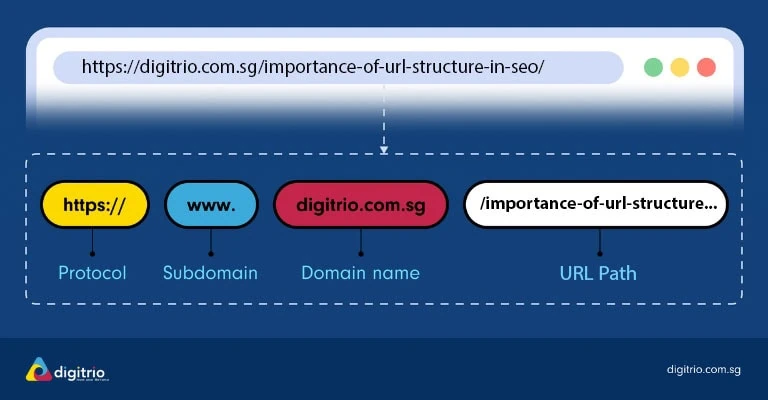
An SEO-friendly URL structure is crucial for helping search engines and users easily understand and navigate your website.
A well-structured URL should be short, descriptive, and include relevant keywords to accurately represent the content on your web page. Make sure to use hyphens instead of underscores, remove redundant words, and use lowercase letters for better readability and search engine indexing.
Additionally, keep in mind to consider organizing your website’s content into categories and subfolders to enhance navigation and show the relationship between pages.
Read more: How to Make A URL Structure SEO-Friendly?
Indirect Ranking Factors
While some factors help your website rank higher, other factors don't directly affect Google search ranking but are still important. Let's look at these indirect ranking factors and how they can impact your website's performance in Google search results.
1. Structured Data
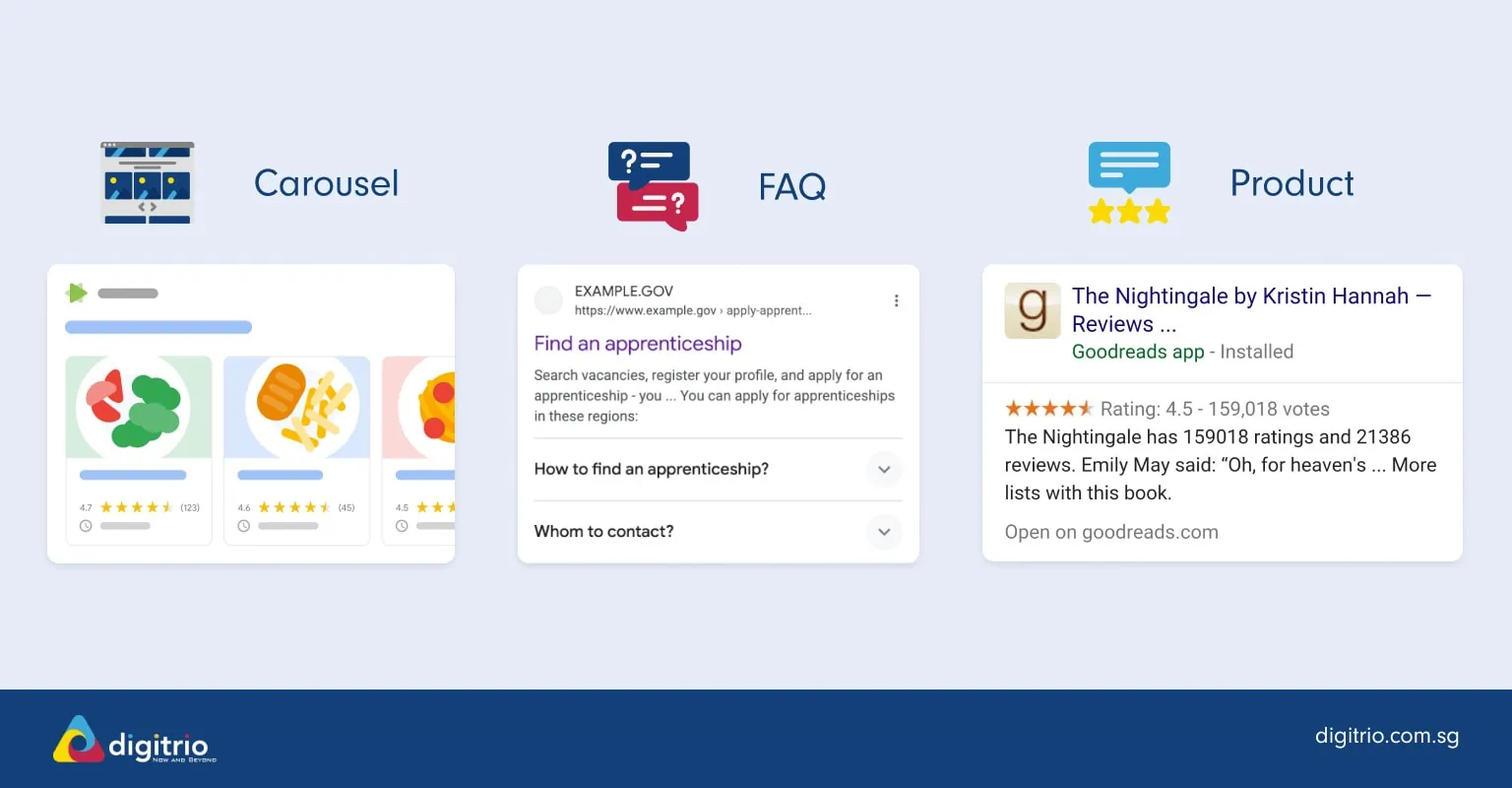
Structured data refers to a set of organised information that is presented in a way that search engines can easily process.
While structured data is not a direct ranking factor, it can indirectly impact your website’s search engine performance. Here are the benefits of structured data:
Helps search engines better interpret the content of your web pages
Generates rich snippets, making your results more eye-catching, leading to improved visibility on Google
It can also earn featured snippets, which appear at the top of search engine result pages before other organic listings
Increase clickthrough rates by providing additional business information about your website, and making search results more engaging for users
2. E-E-A-T and YMYL: Google's Quality Guidelines
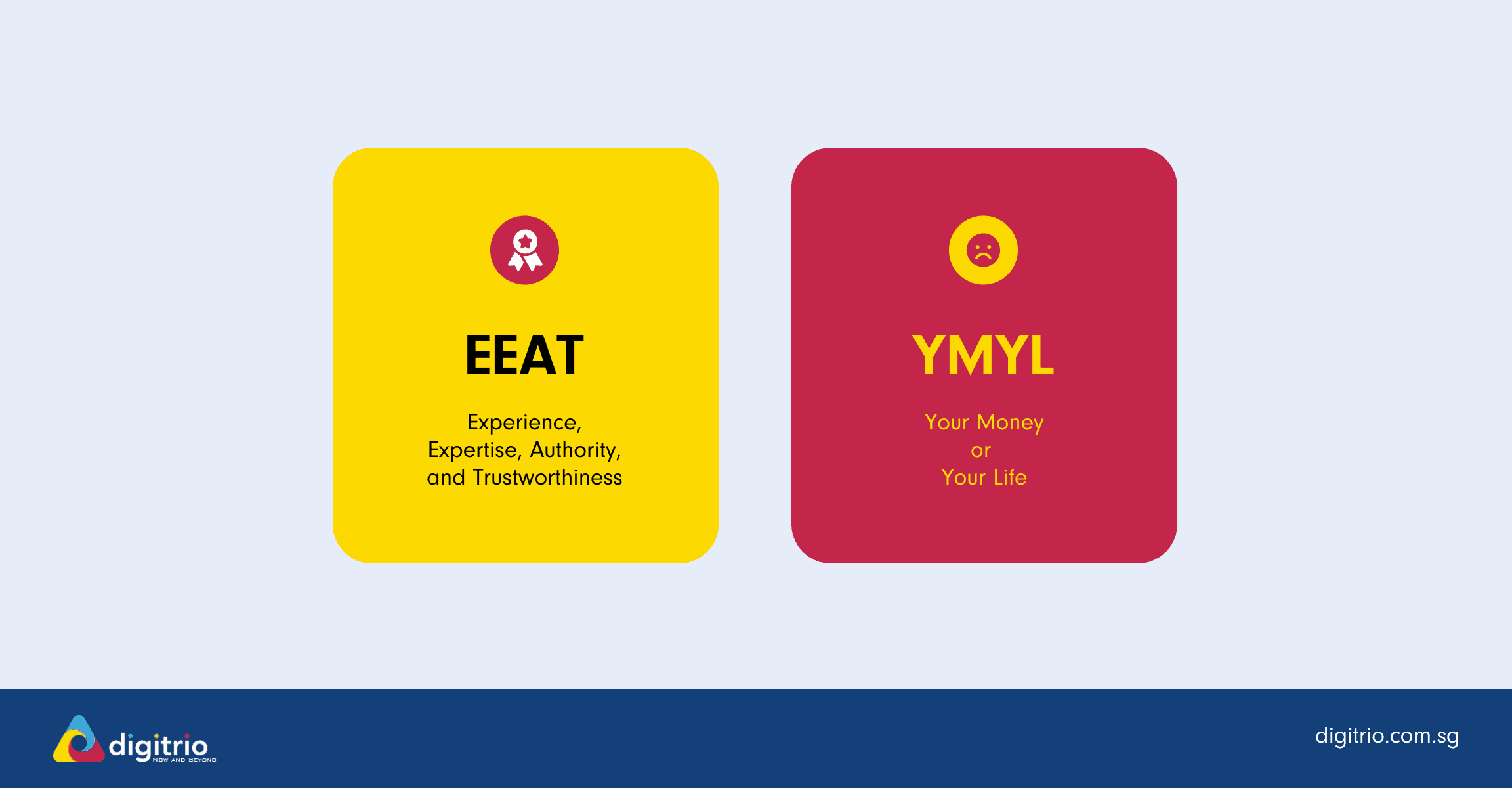
E-E-A-T (Experience, Expertise, Authority, and Trustworthiness) and YMYL (Your Money or Your Life) are quality guidelines used by Google to assess a website’s credibility and value.
Here's a quick breakdown:
E-E-A-T: Used by Google to evaluate if their search ranking systems are providing helpful, relevant information.
Experience: Does the content creator have first-hand / life experience for the topic?
Expertise: Does the content creator have the necessary skills or knowledge for the topic?
Authority: Is the content creator or the website known as a go-to source for the topic?
Trustworthiness: Is the page accurate, honest, safe, and reliable?
YMYL: These pages cover or touch on topics that can potentially impact a person’s future happiness, health, financial stability, or safety. Pages on these YMYL topics will be subject to the most scrutiny when Google is rating its page quality.
To follow Google's quality guidelines, make sure you have well-researched, high-quality content. Display your knowledge and expertise in your field. Link to trusted sources to show your website's reliability. This will help you create useful content for your users and enable your site to rank well in search results.
Congrats! Now You Know More About Ranking Factors
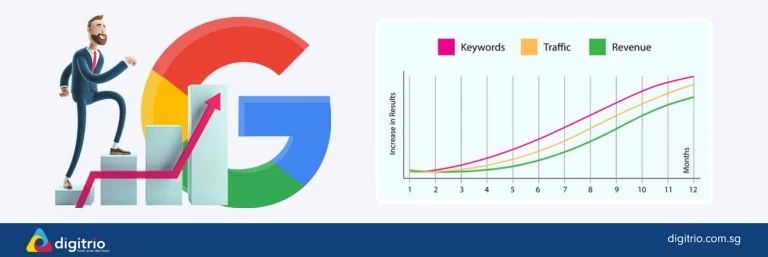
You're one step closer to becoming better at SEO! However, knowing SEO does not translate into doing well in SEO. Sometimes, you need professional guidance to rank above your competition.
If your business in Singapore is grappling with executing an effective SEO strategy, considering professional help might be your next step. As an SEO agency, we specialize in implementing key Google ranking factors tailored to boost the online presence of Singaporean businesses in a competitive digital landscape.
Why not start a conversation with us today—let us know your concerns and we'll give you the right, practical advice that has helped us rank pages consistently over the past decade!
Frequently Asked Questions
To analyze SEO ranking, here are some basic metrics you should track:
- Organic traffic
- Keyword rankings (for different search queries)
- SERP visibility
- Click-through rate (CTR)
- Bounce rate
- Website authority
- Number of Backlinks
- Page speed
- Content grade
In our opinion, the top 3 ranking factors can be split into on-page, off-page, and technical SEO ranking factors. Ultimately, Google wants to see websites with relevant and helpful content, a good user experience, as well as reputation and credibility.
In order to answer this question, you need to understand that Google is similar to a huge digital library, and their librarians (algorithms) meticulously organize these vast amounts of web content using a 3-step process of (1) crawling -- (2) indexing -- (3) ranking.
Learn more about How Search Engine Works.

